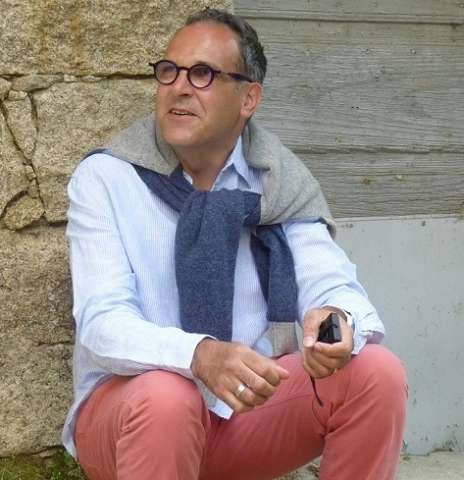For its penultimate production of the 2019 season, the Opéra Comique have unearthed a rare gem: Francesco Cavalli's masterpiece Ercole Amante, with musical direction entrusted to Raphaël Pichon and staging to the directorial pairing of Valérie Lesort and Christian Hecq.
Ercole Amante had been commissioned by Louis XIV's minister Mazarin for the occasion of the king's marriage to Maria Theresa, Infanta of Spain, but did not receive its première until two years later, on February 7th, 1662, for the inauguration of the gigantic space of The théâtre des Machines in the extension of the Tuileries Palace, whose construction had been delayed. Master of Venetian opera, Cavalli adapted to French tastes by composing an opera with a prologue and five acts. He was also forced to accept that his work would be "enriched" by more than three hours of ballets by the young – and already highly influential – Lully. These additions had the particular effect of allowing Louis XIV to come on stage and dance, as he had done nine years earlier in the Ballet royal de la nuit. In this production, to do justice to Cavalli, the ballets have been cut, with only a few choreographic elements included to provide a discreet reminder of their existence.
After a prologue glorifying the royal house of France, the libretto, entrusted by Mazarin to the priest Francesco Buti, tell us of the end of Hercules' life. Although married to Deianira, our hero desies princess Iole, who is betrothed to his own son Hyllus. With the complicity of Venus, he achieves his lecherous aims. Desperate to recover the love of her husband and believing that this will help, Deianira persuades him to dress in the poisoned tunic of the centaur Nessus, which in fact has the effect of causing Hercules appalling suffering and death. At this point, the gods take him up to Mount Olympus, where he is married to Beauty (not Hebe as in the myth), a double allusion to the transformation of Louis XIV from ordinary mortal to divinely appointed monarch and to the Herculean imagery (attached to the kings of France since Henry II) bound to the Apollonian symbol of the Sun King.
To bring this larger-than-life work to the stage, Valérie Lesort and Christian Hecq have found the perfect balance between fidelity to the libretto and its baroque character and the need to simplify it technically and in dramaturgy. Far from inhibiting their creativity, these twin constraints seem to have provided a stimulant. The visual style of Laurent Peduzzi multiplies the allusions to baroque opera's love of theatrical machinery, with multiple scene changes, appearances and disappearances. We see people and creatures metamorphose in superb costumes designed by Vanessa Sannino. The humans make their entrances from below the stage, whereas the gods descend from the flies. Humour and magic pervade everything, examples being Juno's arrival perched on a peacock (as specified in the stage direction), or the weird green monster, a distant cousin of Casimir [the dinosaur from French children's TV], whom Hercules leads around on a leash. The lighting, by Christian Pinaud, makes a substantial contribution to the marvellous fairytale atmosphere that bathes the whole show.
In the pit, Raphaël Pichon and his Ensemble Pygmalion bring all their knowledge and all the possibilities of their array of instruments to give sparkle to every detail of this opulent score which overflows with invention. The chorus is remarkable for his cohesion, precision and intonation.
On stage, the cast also reaches Olympian summits, starting with Nahuel di Pierro who brings Hercules magisterially to life. Force, trickery, covetousness, violence, love and finally majesty: each character trait is imprinted on his bass voice with a great deal of perception and apparent ease. Opposite him, the mezzo Anna Bonitatibus incarnates a superb Juno: her vocal line is spun with noble elegance, as much in anger as in solemnity, not to mention a few moments of pure tenderness. In spite of having been announced as unwell, soprano Francesca Aspromonte carries the role of Iole almost flawlessly, proving herself particularly touching. Krystian Adam is totally engaged in his role of the unfortunate Hyllus, powered by a tenor voice of great subtlety and remarkable projection. Mezzo Giuseppina Bridelli excels and impresses as a Deianira who never loses her dignity in the face of the most profound of bruising.
Sculpted in the most noble of wood, the ample, deep base of Luca Tittoto is staggering as Neptune and the ghost of Eutyrus. Having been Dian in the prologue, soprano Giulia Semenzato is more convincing as Venus. Of the four contrasting characters that permit soprano Eugénie Lefebvre to play the chameleon, it's the charm of the gentle Pasithea that stays in the memory. The two comic roles are accorded to countertenors: Dominique Visse's Lychas is irresistible, with notably hilarious shifts between his head voice and chest voice. Making up for a relatively tight voice with highly poetical acting, Ray Chenez's Page isn't far behind.
Translated from French by David Karlin




